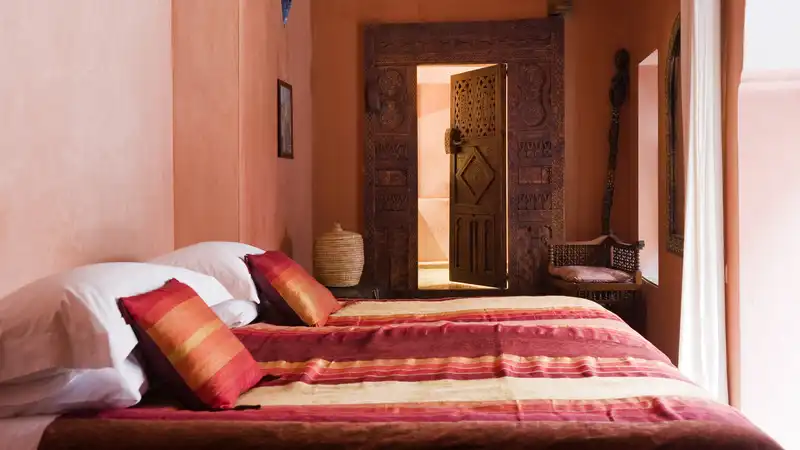Since the bedroom is a private sanctuary from the hustle and bustle of everyday life, many people are tempted to keep their bedroom door closed all night long. But have you ever considered that simply opening your bedroom door instead might help you fall asleep faster and more easily, increasing your chances of sleeping through the night?
Choosing the best mattress for your body and cutting back on caffeine and other stimulants can increase your chances of sleeping through the night, but there's an even easier hack. Rebecca Swain, mattress advisor at Winston Bed, revealed that leaving your bedroom door open at night can help you fall asleep easier and faster.
Here's what you need to know...
Sleeping with the bedroom door open makes it easier to regulate the overall atmosphere as well as the climate in the bedroom." Swain explains, "Not only does it regulate the room temperature and make it easier to sleep, but it also removes the feeling of being confined when resting in a small space.
Seven advantages of sleeping with the door open include:
Swain believes that the optimal bedroom temperature is 17-19°C, although recent studies have revealed that the optimal temperature for sleep is 20-25°C.
In any case, temperature plays a major role in how quickly you fall asleep and how likely you are to sleep through the night. Regulating the temperature in the bedroom can also help prevent overheating and night sweats. A smart thermostat also makes it easier to manage temperature and takes the guesswork out of the equation.
Open doors improve airflow and help regulate bedroom temperatures. If doors need to be closed, consider opening windows instead. Swain says, "Waking up to too much heat is a common cause of sleep disruption." The quick fix is to open doors throughout the night to lower the temperature and allow for a more comfortable night's sleep." [A poorly ventilated bedroom is a breeding ground for dust and mold, aggravating allergies and causing people to spend the night coughing and sneezing instead of sleeping.
"Dusty rooms trigger allergies and make restful sleep difficult," Swain explains.
"Opening doors and allowing air to circulate freely can help reduce the amount of dust that builds up."
Allowing fresh air to flow into the bedroom can also remove foul odors and pet dander from the room.
For some people, a closed bedroom door can make them feel trapped. In a small bedroom, opening the door can make it easier for natural light from other areas of the house to enter. This will make the space feel larger, fresher, and more comfortable for sleeping. As a result, one can relax more quickly and fall asleep more quickly.
The benefits of an open door can be emphasized with bedroom feng shui (furniture rearrangement that has a positive impact on wellbeing); Claire Davies, sleep editor and certified sleep science coach for Tom's Guide, recommends "placing the bed diagonal to the bedroom door in a " commanding position," she says. You can see the door from the bed, but your feet should not be directly facing the door.
"The bed should not be directly opposite the door," Davis continues. This is known as the "coffin position," and it leaves you unprotected and harried all night long, making it difficult to fall asleep or stay asleep.
It can be difficult to sleep soundly with the bedroom door open.
Even in these cases, you do not need to open the door wide to sleep and breathe easier. First, open the windows to let fresh air in, and if your bedroom is humid, use a humidifier to reduce mold growth.
If the room has a foul odor, consider using a room spray with a relaxing scent such as lavender or eucalyptus.
In addition to opening windows and doors, there are other ways to optimize your bedroom for sleep. Creating an optimal sleep environment requires thinking about what is preventing you from sleeping and what is preventing you from relaxing:
.









Comments